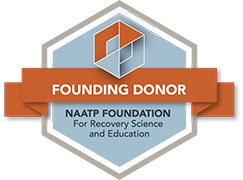What is Humility and How Does That Relate to Recovery?
“I find I am at my best when I can let the flow of my experience carry me…” – Carl Rogers
The dictionary defines humility as: “a modest or low view of one’s own importance; humbleness”. As human beings, it’s pretty natural for us to feel an inflated sense of importance. We are so focused on our own thoughts and opinions that we begin to believe everything around us is connected to us specifically – that the world is conspiring against us, or that others are talking about us, or that our circumstances are occurring not because of us, but rather because of something else. Our ego leads us to believe that we’re much grander in the scheme of life than we really are – and this is what sets us back.
Humility and the 12-Step Program
A major part of addiction recovery is truly understanding that we are not “God”. We do not have control over the situations that happen to us or around us, and we cannot control others. We cause much distress on ourselves when we believe these falsities are true, however, because it’s when we believe we have this much control that we experience depression, anxiety, loneliness and more as we’re reminded time and time again – by the universe – that we don’t.
A 2016 article published in the journal Alcohol Treatment Quarterly denoted that 12-Step programs such as Alcoholics Anonymous (AA) emphasize the concept of humility in this very manner. In fact, there are four particular elements of humility that are discussed in 12-Step programs:
One: Humility as complete defeat before a Higher Power. This is the part of AA where people acknowledge that they’ve become powerless over their addiction and that their lives have become unmanageable. With this, 12-Step programs seek to help people understand that in reliance upon themselves to “stop” their addiction, they’ve failed – and upon recognizing this powerlessness, they need help from a source greater than themselves.
Two: Humility as accurate self-appraisal. Many people struggling with addiction go down the path of self-pity. They begin to feel bad for themselves, but that only further perpetuates their addictive behavior. 12-Step programs promote the use of conducting a “personal inventory” where a person can share their entire life story – successes, trials, tribulations – with another person in recovery to gain some insight from another person on where their selfishness may have contributed to their downfall.
Three: Humility of contrition. Steps 8 and 9 of the 12-Step program lead those in recovery to admit their faults to themselves and to others if it is safe to do so. Even if others do not easily make amends with a person in recovery, the goal of this element of humility to help set that person’s spirit free; by addressing the real harm they’ve caused to others, a person will experience a peaceful state of mind in knowing that they tried to “set things right”.
Four: Humility of a rightly ordered self in relation to God and others. In the 12-Step program, steps 10 through 12 relate to creating a lifestyle that is guided by a Higher Power, with principles of love and tolerance to others being a key focus. A person in recovery doesn’t seek perfectionism (because that would go against the nature of humility), but rather they aim to understand the mistakes and flaws that come with being human. The last component of humility taught in AA and other 12-Step programs is to lead life by a Higher Power’s agenda rather than their own, and to help lead others to recovery.
Humility: A Spiritual Aspect of Recovery
Just as love, patience and honesty are spiritual aspects of ourselves, so is humility. Humility grounds us and opens our hearts to become rawer and more vulnerable to others. Self-responsibility, appreciation and respect become fluid when humility is practiced, because we’ve been able to gain a new perspective on ourselves and others. This approach to recovery can help us a great deal in our journey; a 2017 study published in the journal Spirituality and Clinical Practice found that humility can have many direct (and indirect) positive effects on recovery:
- Higher service to others was found linked to lower relapse rates and greater humility
- The combination of service and love can improve the rate of incarceration as well as defiance, two elements that often go hand in hand
- Spiritual virtue overall predicts a more promising pathway in recovery
As humans, we can’t do it all alone. We need help – from a Higher Power, from others, from the tools, lessons and resources we develop over time. Humility combats addiction because it takes out that inflated sense of self and replaces it with a more humble, loving, caring perspective that we’re merely all part of this journey called “life”, together – and it’s a beautiful journey, indeed.
This is the year to change your life from suffering due to the disease of addiction to thriving in the sunlight of the spirit of sobriety. As the world’s first 12-Step treatment center, established in 1939, High Watch Recovery is dedicated to educating patients on 12-Step principles, actions, philosophies, and lifestyles, preparing them to live a happy and healthy sober life after graduating. For information on our continuum of clinical care and our compassionate approach to treatment, call us today: 860.927.3772.








